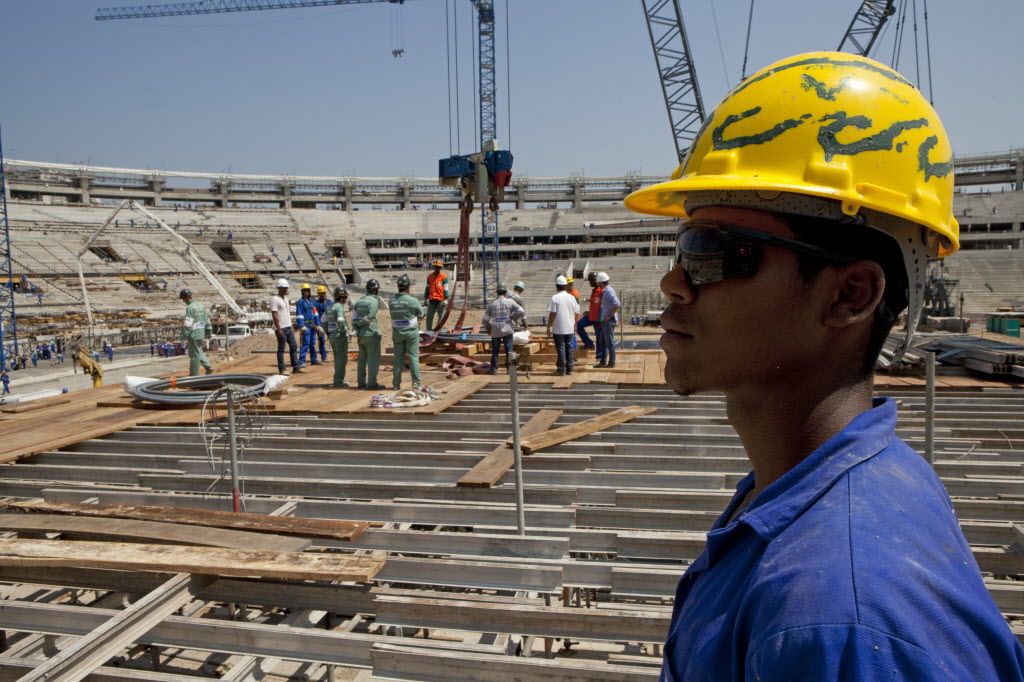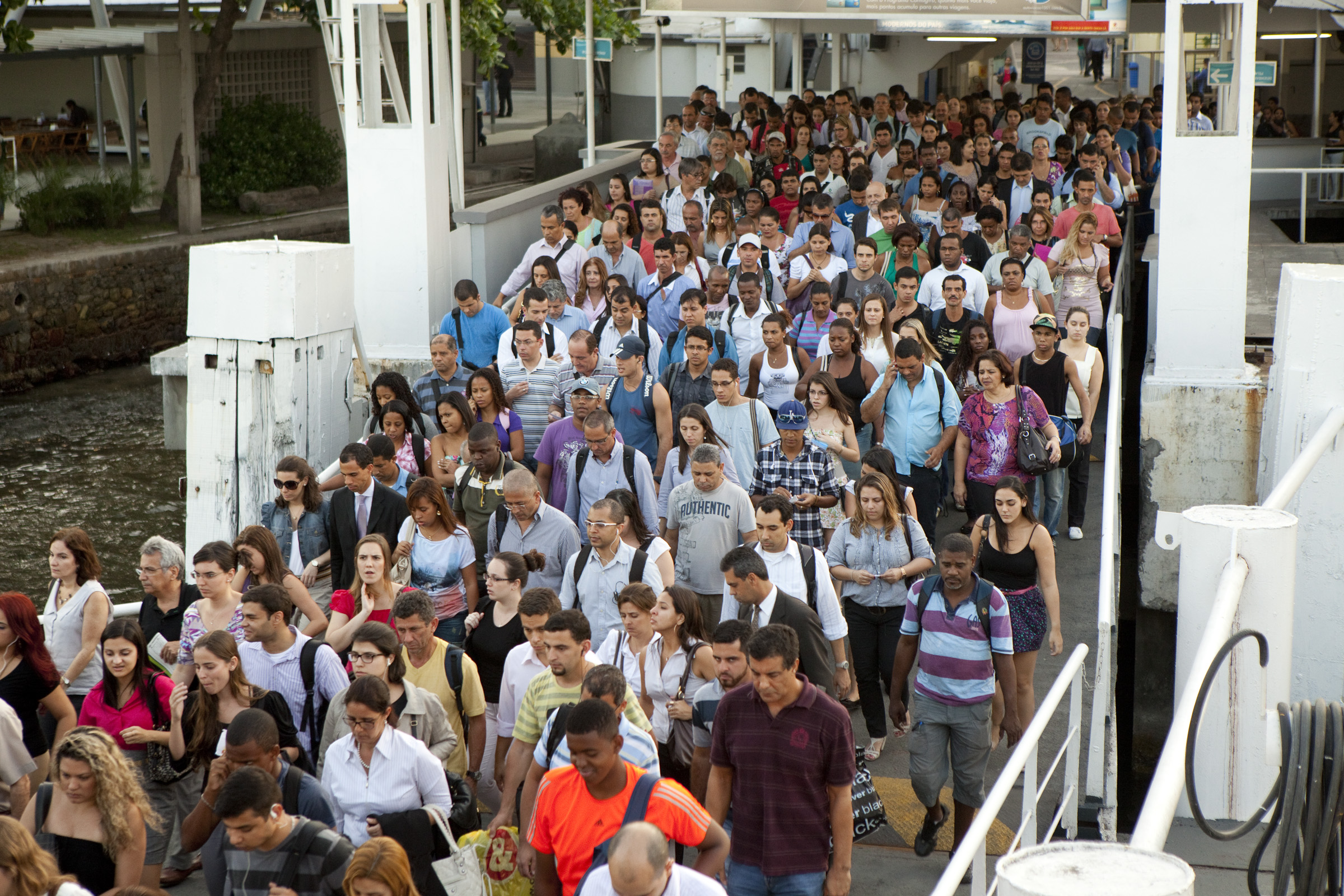
In the past 20 years, Jorge Ramos has migrated from the highlands of Ecuador to New York City and to Santiago, Chile. He has lived in Germany and the Netherlands, too—always selling traditional Andean hats and scarves. But last year, when it was time to head out on the road again to support his wife and three children back home near Otavalo, Ecuador he heard about a new destination from friends and family: Brazil.
Without Portuguese, and with only a budding community of Ecuadorians, unlike the vast networks that have laid down deep roots in New York City or Madrid, Mr. Ramos moved to Rio de Janeiro last year. On a recent Sunday he hawked his hot pink, blue, and yellow cotton scarves and shawls to tourists and a growing Brazilian middle class meandering through the muggy 80-degree temperatures in one of Rio's hillside bohemian neighborhoods—and they were buying.
"Since 2005, more and more Ecuadorians have been coming to Brazil," he says, "all because of the economy." That includes his own family: between siblings and cousins, seven of his family members now call Brazil home.
Low-skilled immigrants, mostly from Europe, flocked to Brazil in the late 19th and 20th centuries. But by the 1960s they stopped, as military dictatorship took over and drew up restrictive, protectionist immigration policies. Since then, says Deisy Ventura, a professor of international relations at the University of Sao Paulo, "Brazil has not been one of the principal immigration destinations." Instead, waves of Brazilians headed out of the country, gaining footholds in places like the suburbs of Boston.
But now South American nations are eyeing their continent's largest country. "Brazil has to prepare itself to be once again a country of immigration," Ms. Ventura says.
Brazil surpassed Britain as the sixth-largest economy in the world last year, according to some economists, and has become a prime destination for high-skilled European architects and engineers who are laying the foundations for the World Cup in 2014 and the Olympics in 2016 or helping extract vast reserves of oil found off the Brazilian coast. But with its rise, Brazil has also become a magnet for a new type of migrant: the low-skilled ones from poorer neighboring countries like Peru and Bolivia who had traditionally opted for the United States or Europe.
Mr. Ramos, who sets up his scarves on the sidewalk, says he feels a warm welcome in Brazil, and certainly has fewer problems with the police than he would in New York. He says he entered on a tourist visa and when it comes time to leave, perhaps in a couple of years, he plans to pay his fine for overstaying.
Down at the packed beach of Ipanema, Peruvian Guillermo Martinez sells sarongs of the Brazilian flag, and he agrees that immigration policies are more lax than those in the US or Europe. (A policeman hassles him during the interview for setting up his ítems on the beach, but he is just given a warning.)
Yet some migration experts worry that there could eventually be an immigration backlash, much like what has been seen in the US or Europe–especially if the economy, which has cooled since 2011, does not reheat. This year, when 4,000 Haitians crossed from Bolivia and Peru into the Amazon looking for jobs, a fierce immigration debate ignited, leading to a controversial quota for them: 100 per month. At the same time Brazil is seeking to update immigration laws still in force from the era of the military dictatorship that erected bureacratic hurdles for even the most skilled workers.
"There is some feeling that Brazil is importing poverty, that we should import European immigration, not black and poor immigrants from the Caribbean," says Helion Póvoa Neto, a migration expert at the Federal University of Rio de Janeiro.
- View this story on Pulitzer Center





